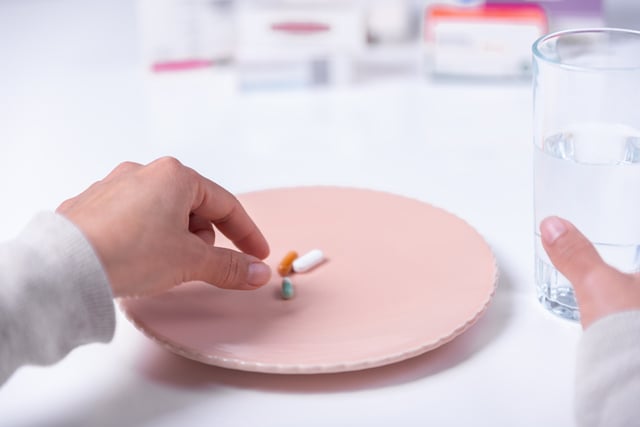
By Ed Cara
The next big obesity medication coming down the pipeline will likely come in pill form. Eli Lilly has just released the latest positive Phase III trial results of its experimental oral GLP-1 drug, orforglipron.
On Tuesday morning, Eli Lilly reported that orforglipron met the benchmarks of the company’s Phase III ATTAIN-2 study. People taking orforglipron experienced substantial improvements in weight loss and blood sugar control compared to those taking a placebo, the study showed. Armed with data from two successful Phase III trials, the company plans to apply for approval from the Food and Drug Administration, with a decision on the drug expected next year.
The newest kid on the block
The ATTAIN-2 trial was conducted across 10 countries and involved more than 1,600 people who were obese or overweight with type 2 diabetes. Volunteers were randomized to either receive a placebo or one of three varying doses of orforglipron, taken once a day (as is common with GLP-1 therapy, people gradually reached their maximum dose over time). The participants were tracked for 72 weeks.
No matter the dose, people on orforglipron lost more weight and saw a greater reduction in blood sugar than people on placebo, the study found.
Those taking more of the drug did show more improvement, though. People on the highest dose of orforglipron lost on average around 10% of their baseline body weight, for instance, compared to the 2.5% average weight loss seen in those taking a placebo. The drug performed better on all secondary endpoints as well, including a greater percentage of people losing at least 15% of their weight (roughly a third of those on the highest dose achieved this).
Orforglipron also appeared to be as safe and tolerable as other existing GLP-1 drugs. Common adverse events included diarrhea, vomiting, and constipation (more common for those on the highest dose). About 10% of participants on the highest dose discontinued treatment due to their adverse events, compared to 5% of those on placebo.
These results follow similar findings from the company’s ATTAIN-1 trial released earlier this month, which tested the drug on people who were overweight or obese without type 2 diabetes (in general, people without diabetes tend to lose more weight from GLP-1 therapy than those with diabetes). The company will now formally push forward with seeking approval from the FDA and other regulatory agencies.
“With these positive data in hand, we are moving with urgency toward global regulatory submissions to potentially meet the needs of patients who are waiting,” said Kenneth Custer, executive vice president of Eli Lilly and president of Lilly Cardiometabolic Health, in a statement from the company.
Disclaimer
The information contained in South Florida Reporter is for general information purposes only.
The South Florida Reporter assumes no responsibility for errors or omissions in the contents of the Service.
In no event shall the South Florida Reporter be liable for any special, direct, indirect, consequential, or incidental damages or any damages whatsoever, whether in an action of contract, negligence or other tort, arising out of or in connection with the use of the Service or the contents of the Service. The Company reserves the right to make additions, deletions, or modifications to the contents of the Service at any time without prior notice.
The Company does not warrant that the Service is free of viruses or other harmful components












